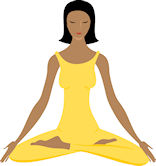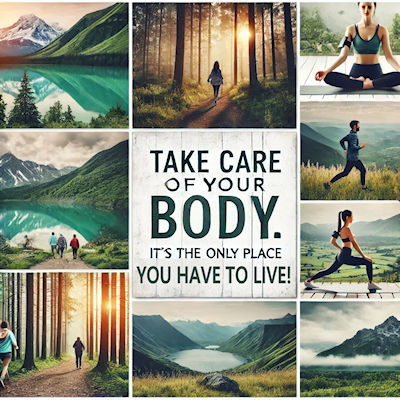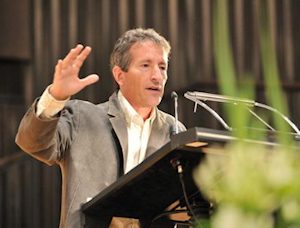- Improving lives since 2002
- Fast, Friendly Service
- Free Nutritional Counseling
The key to health is eliminating toxicities and deficiencies! - Dr. William R. Kellas
Your Body is Like a Car or Household Appliance
It Needs Maintenance


If you could only have one car or one particular household appliance to last your entire lifetime, what good maintenance practices would you establish to make it last your whole life? More importantly, with the one and only body you will ever have, what maintenance practices are you implementing so that your body will stay optimally healthy through a long life?
Eight Habits of Health
Preserving biological youth for as long as human potential allows. This means keeping your cells, tissues, organs, and entire system performing at their highest level—so you remain strong, agile, mentally sharp, and pain-free, without the common signs of aging like stiffness, fatigue, or decline.

To maintain vibrant health and extend your biological youth far beyond the norm, you must overcome the hidden forces that accelerate aging—namely glycation, oxidative stress, microbiome imbalances, and disruptions in cellular signaling. These silent saboteurs drain your vitality and speed your decline—often without obvious warning.
But here’s the often-overlooked truth:
If you don’t feel like moving, you won’t move—and if you don’t move, you won’t thrive.
Movement is life. In our modern medical age where dying young is not common, continuing to move daily is the single strongest predictor of longevity and healthspan. Yet millions are trapped in a cycle of fatigue, inflammation, and poor cellular function that makes movement feel burdensome or even impossible. It’s not laziness—it’s biology.
That’s why the key to lasting health isn’t just willpower—it’s learning to restore the conditions that make you want to move:
At the root of these is your body's innate power to heal, renew, and even rejuvenate aging cells and tissues—if you give it the right support.
By combining the best of ancestral wisdom and cutting-edge science, we teach people how to neutralize aging accelerators and reactivate the body’s natural drive for movement and vitality. The Eight Habits of Health provide a clear, actionable path to do just that—through aligned choices in nourishment, activity, recovery, mindset, and environment.
Once you understand these principles, the choice is yours:
Your body was made to move. Let’s help you feel good enough to do it—naturally, daily, joyfully.
Lorem ipsum dolor sit amet, ne sea vocent scripta abhorreant, facilisi explicari mel ne, ut quo vide ridens. Mei ex quodsi inciderint, quo ad quas deleniti definitionem, vis no wisi graecis offendit. Ius ut everti detraxit expetenda, meis civibus consectetuer ea usu. Ad qui option facilisis consequuntur, pro omnis aliquip vulputate te. Solum affert expetenda eos te, et vim sale iudico impetus, in appetere postulant ius. Alia nihil utroque ex sit.
The average lifespan is just 78 years. Most people begin feeling old — and showing signs of chronic disease — by age 63. Many suffer even earlier... and far too many die before they reach average lifespan. But here's the truth: poor health and early death are not inevitable. You have options.
Imagine feeling strong, clear, and vibrant into your 90s, 100s — even 120 and beyond. It's not science fiction. It's simply the result of making better choices. Your lifespan and healthspan are shaped more by your daily actions than by your genes. And the 8 Habits of Health are a simple, powerful roadmap to help you get there.
You don’t have to be another statistic. You can step off the path of slow decline and onto a path of strength, clarity, and vitality. With the 8 Habits of Health, small consistent changes can unlock decades of vibrant living — not just more years, but better ones.

Ron Rosedale is an Internationally known expert in nutritional and metabolic medicine whose work with diabetics is truly groundbreaking. Very few physicians have had such consistent success in helping diabetics to eliminate or reduce their need for insulin and to reduce heart disease without drugs or surgery.
Dr. Rosedale was founder of the Rosedale Center, co-founder of the Colorado Center for Metabolic Medicine (Boulder, CO USA) and founder of the Carolina Center of Metabolic Medicine (Asheville, NC). Through these centers, he has helped thousands suffering from so-called incurable diseases to regain their health.
One of Dr. Rosedale's life goals is to wipe out type II diabetes in this country as a model for the world. He also has written a book,"The Rosedale Diet", covering his proven treatment methods for diabetes, cardiovascular disease, arthritis, osteoporosis and other chronic diseases of aging.
Dr. Valter Longo, a professor of gerontology and biological sciences at the University of Southern California, is renowned for his research on fasting-mimicking diets and their impact on aging and longevity. He advocates that specific dietary patterns can activate cellular regeneration and promote a longer, healthier life.
Dr. Luigi Fontana, a physician and researcher, has extensively studied the effects of calorie restriction and plant-based diets on aging. He posits that such dietary interventions can significantly extend lifespan and healthspan. In his book, "The Path to Longevity," he discusses how a nutrient-rich, low-calorie diet can promote longevity.
Dan Buettner, a National Geographic Fellow and author, has identified regions known as "Blue Zones," where people live significantly longer lives. He attributes this longevity to lifestyle factors, including plant-based diets, regular physical activity, and strong social connections.
Dr. Elizabeth Blackburn, a Nobel laureate, has conducted pioneering research on telomeres—the protective caps on chromosomes—and their role in aging. She suggests that lifestyle choices, such as a balanced diet, stress management, and regular exercise, can maintain telomere length and promote healthy aging.
Dr. Peter Attia, a physician focusing on the science of longevity, emphasizes that lifestyle interventions, including nutrition, exercise, and stress management, can significantly impact lifespan and healthspan. In his book, "Outlive: The Science and Art of Longevity," he explores these concepts in depth.
Tech entrepreneur Bryan Johnson has embarked on an ambitious endeavor known as "Project Blueprint," aiming to rejuvenate his body's biological age. Through a meticulously structured regimen encompassing a strict vegan diet, precise supplementation, regular exercise, and advanced medical interventions, Johnson reports remarkable results. He claims to have reduced his biological age by over five years, effectively aging only eight months for every chronological year. This suggests a significant deceleration in the aging process, offering a glimpse into the potential of dedicated lifestyle modifications and medical innovations.
Read more about Bryan Johnson's Project Blueprint
Harvard geneticist Dr. David Sinclair has been at the forefront of aging research, proposing that aging is a condition that can be targeted and potentially reversed. His studies have demonstrated that certain molecules, such as NAD+ boosters, can activate sirtuin genes associated with longevity. Notably, Sinclair's lab has successfully reversed age-related vision loss in mice by reprogramming cells to a more youthful state, highlighting the profound possibilities of cellular rejuvenation.
Read more about Dr. David Sinclair's research
Beyond individual efforts, the scientific community is exploring various compounds with anti-aging properties. For instance, the diabetes medication metformin is under investigation for its potential to mimic the effects of caloric restriction, a known factor in extending lifespan. Additionally, research into NAD+ precursors like NMN shows promise in enhancing cellular repair mechanisms, thereby slowing down aspects of the aging process.
Read more about NAD+ precursors and aging research
While these developments are promising, it's essential to approach them with a balanced perspective. Ongoing research and clinical trials are crucial to fully understand the long-term implications and safety of these interventions. Nonetheless, the convergence of disciplined lifestyle choices and cutting-edge science is paving the way toward a future where extended youthfulness could become a reality.
For a deeper dive into Bryan Johnson's approach, you might find this video insightful:
Copyright 2002 - 2024. All rights reserved.
These statements have not been evaluated by the Food and Drug Administration. No product mentioned herein is intended to diagnose, treat, cure or prevent any disease. If you are pregnant, nursing, taking medication, or have a medical condition, consult your physician before making any lifestyle change, including trying a new product or food.
The information on this website is intended as a sharing of knowledge and information from the research and experience of the Healthy-Living.Org staff and contributors. It is not intended to replace a one-on-one relationship with a qualified health care professional and it is not intended as medical advice. You should not use the information on this site for diagnosis or treatment of any health problem or for modification of any medication regimen. You should consult with a healthcare professional before starting any diet, exercise or supplementation program, before starting or discontinuing any medication, or if you suspect you have a health problem. You should keep in mind that cited references to ongoing nutritional scientific study are most likely not accepted by the FDA as conclusive. These references and mentions of benefits experienced by others are disavowed as product claims and are only included for educational value and as starting points for your own research. No food or supplement can be considered safe for all individuals. What may benefit 999,999 of a million people may harm you. Therefore, no one can take responsibility for your health except you in concert with your trusted health professional.